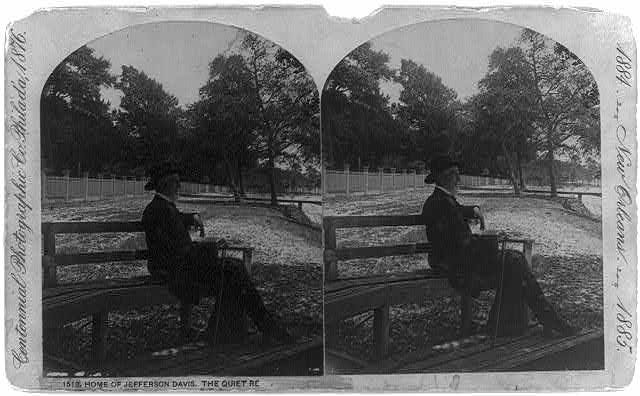I have a friend on Instagram who often shares great contemporary fiction recommendations but who has confessed that she finds it hard to enjoy historical fiction because of how heavy the topics can be. I’m currently working on a fictional piece that has both contemporary and historical parts, and one of my goals is to have humor in both. In the contemporary parts, this comes pretty naturally, but in the historical sections, it’s harder because I’m writing about people whose lives have been shaped by war.
Last week, I shared the story of Antoine Graves, a principal at the Houston Street School in Atlanta, who refused to attend a celebration honoring the former president of the Confederacy, Jefferson Davis, when the latter visited Atlanta for the dedication of a statue of Benjamin Hill in 1886. Graves, who was a Black educator teaching Black students, stated that he would not honor Davis, who had fought to keep Black people enslaved and without education. This act of defiance is said to have resulted in Graves losing his job and fleeing the state for a time.
I’ve known this story for a few of years since Graves is one of the individuals highlighted in Oakland Cemetery’s We Shall Overcome tour. I’ve always framed his story as one of resistance against oppression, which it is. Graves risked a lot by defying the request to attend Davis’s parade, and he suffered consequences that speak to the perils of challenging white supremacy at that time.
Is it possible to find humor in a story of defiance like this one?
As I was researching news articles last week about Davis’s visit to Atlanta, I found out something surprising. Although I don’t think he would have known it when he refused to attend, Graves was actually doing what Davis wished everyone in Atlanta would have done that day: stayed home.
It turns out, Davis wasn’t feeling well, and the people who had traveled to meet him in Montgomery telegraphed ahead to officials in Atlanta requesting “that no public demonstration be made upon his arrival.”
The article that reports on the telegram, which I think must have appeared in The Atlanta Journal shortly before Davis was due to arrive, suggests that it would not be possible to alter the planned welcome reception. Instead, it advised that the event should be carried out with “as little noise and excitement as is possible” and “[c]heering should not be indulged in.”

Jefferson Davis wanted a quiet reception, but as the Journal would report the following day, this was not what he received. First, when his train made stops between Montgomery and Atlanta, he found large groups of people gathered at the depots, who would cheer until he made an appearance. In Atlanta, Davis arrived to a crowd of thousands, and when he exited the train, the cheering was “loud and prolonged, and for several minutes one could hardly hear himself think.” Children lined the streets, throwing flowers in advance of Davis’s carriage, and then they joined in the procession behind the carriage “their voices [raised] in shouts and cheers.” Once Davis reached his destination, the crowd kept calling for him until John B. Gordon, a former Confederate general, ordered them away saying Davis wouldn’t be able to come out. After that group dispersed, Confederate veterans, along with a band, marched outside the house and cheered until Davis made an appearance. Finally, a group of cadets with a drum corps came by the house and “fired a volley.”
Whenever I’ve told the story of Antoine Graves, I’ve always pictured Jefferson Davis enjoying being welcomed to town, but now that I know Davis didn’t want a celebration at all, for me, the story has a sense of comic justice for Graves that it didn’t before.
What do you think? Is this funny? Should Davis’s state of mind be shared or is irrelevant to the story of Antoine Graves?





I agree!
I think adding how Davis didn't want the noise and parade should be included.